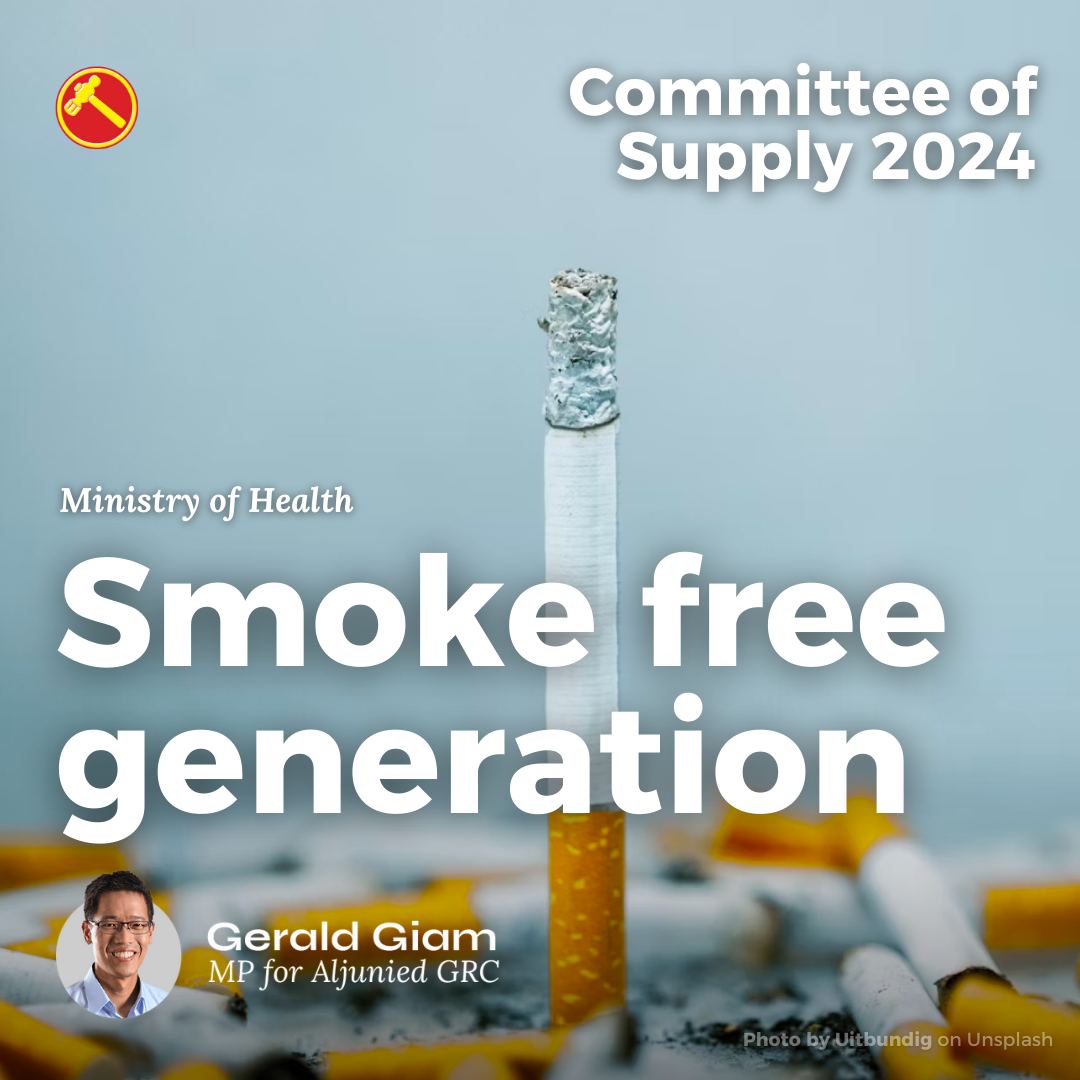Committee of Supply debate, Ministry of Health, 5 March 2024
The healthcare costs and lost productivity caused by smoking in Singapore has been estimated to be at least $600 million a year.
Singapore has some of the world’s toughest anti-smoking laws. Yet, continuing to raise tobacco taxes and extending public smoking bans may be seeing diminishing returns. Stricter rules in public spaces have ironically driven smokers to light up at home or create informal smoking corners, harming their children’s health and sparking neighbour complaints about second-hand smoke.
In January 2023, the Ministry of Health stated it is reviewing international practices on cohort smoking bans. The UK plans to increase the minimum smoking age every year until eventually no person can legally buy cigarettes. New Zealand initially implemented a cohort smoking ban, but the new conservative government revoked it to fund tax cuts.
DPM Lawrence Wong stated in January 2024 that public health and not potential tobacco tax revenue loss were factors in banning e-cigarettes. I trust this principle will also apply to any government decision on a cohort smoking ban.
A generational smoking ban is specifically designed to safeguard the future, without imposing restrictions on current smokers. This forward-looking approach ensures that today’s adults can make their own choices, while laying the groundwork for a healthier legacy for their children and grandchildren.
I urge the government to implement a cohort smoking ban for all individuals in Singapore born on or after 2010. This will give us four years to prepare new smoking regulations before we see our first smoke-free generation for all children currently aged 14 and under.
